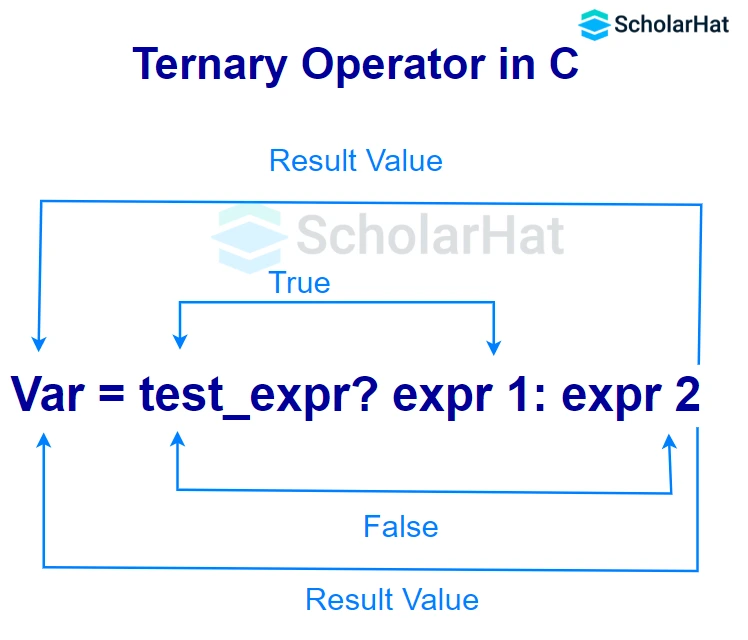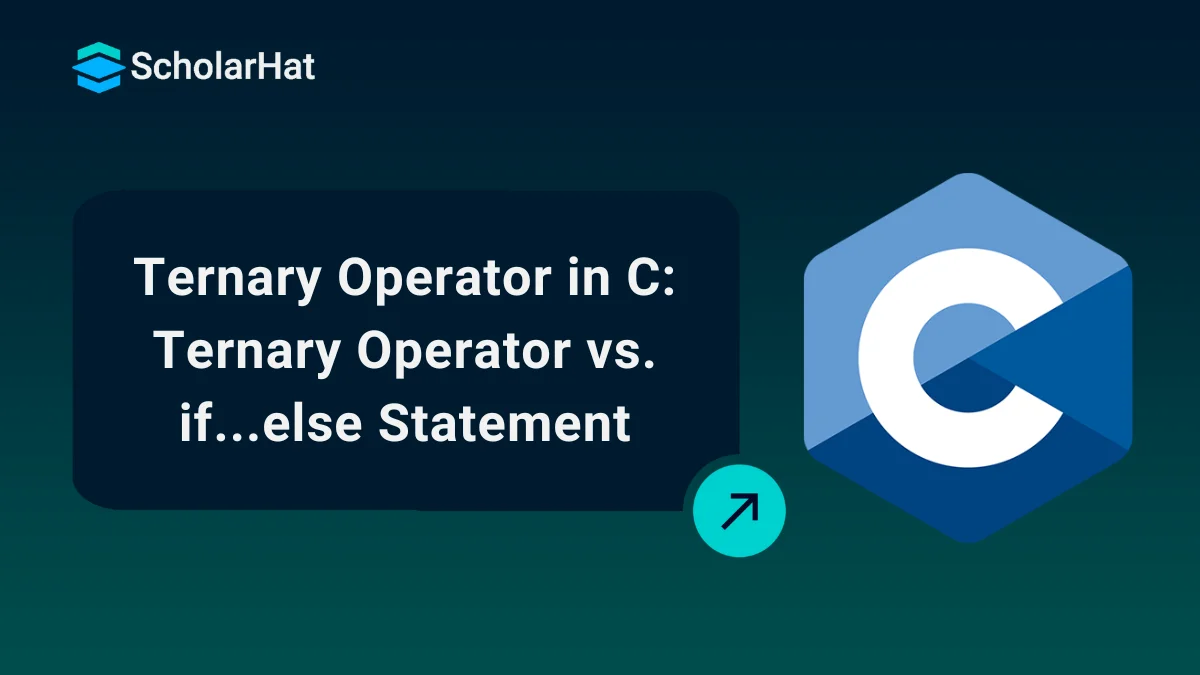13
FebTernary Operator in C: Ternary Operator vs. if...else Statement
Ternary Operator in C: An Overview
In the Operators in C, we saw the definition, syntax, and one basic example of theternary operator in C. In this tutorial, we will get into the Ternary operator in detail. Join us in our C Tutorial to examine the fundamental ideas and real-world uses of ternary operators in C programming. To enhance your learning, you can enroll in a C programming language online course free and master the concepts effectively!
Assign the ternary operator to a variable
We saw the syntax of aternary operator:testexpression? expression1 : expression2;
In the above syntax, we can assign the expression of the ternary operator to a variable like this:
testcondition = condition? expression1 : expression2;
Here, if the condition results in true, expression1 will get assigned to the variable, testcondition. If false, expression2 will get assigned to the variable.
Example
#include <stdio.h>
int main()
{
int a = 5;
int b = 10;
int max = (a > b) ? a : b;
printf("The maximum value is: %d\n", max);
return 0;
}
test-condition, “a>b” is checked. If it evaluates to true, the value of a will be printed else the value of b will be printed.Read More - Top 50 Mostly Asked C Interview Questions
Output
The maximum value is: 10Ternary Operator Vs. if...else Statement in C
Theternary operator may sometimes be used to replace multiple lines of code with a single line. Many a time, it is used to replace simple if-else statement. It enhances the code readability by reducing the length of your program.Example
#include <stdio.h>
int main()
{
int num=3;
if (num % 2 == 0) {
printf("Even Number");
}
else {
printf("Odd Number");
}
return 0;
}
The above code checks whether a number is odd or even with the help of an if-else statement.
We can use the ternary operator to perform the same operation.
#include <stdio.h>
int main() {
int num = 3;
(num % 2 == 0) ? printf("Even Number") : printf("Odd Number");
return 0;
}
If we compare the above two codes, we can find that the code using the ternary operator looks more readable and short as compared to the one using if-else.
If you want to use a single if-else statement to check any condition, you can go for the ternary operator. However, it is totally up to you what to select.










